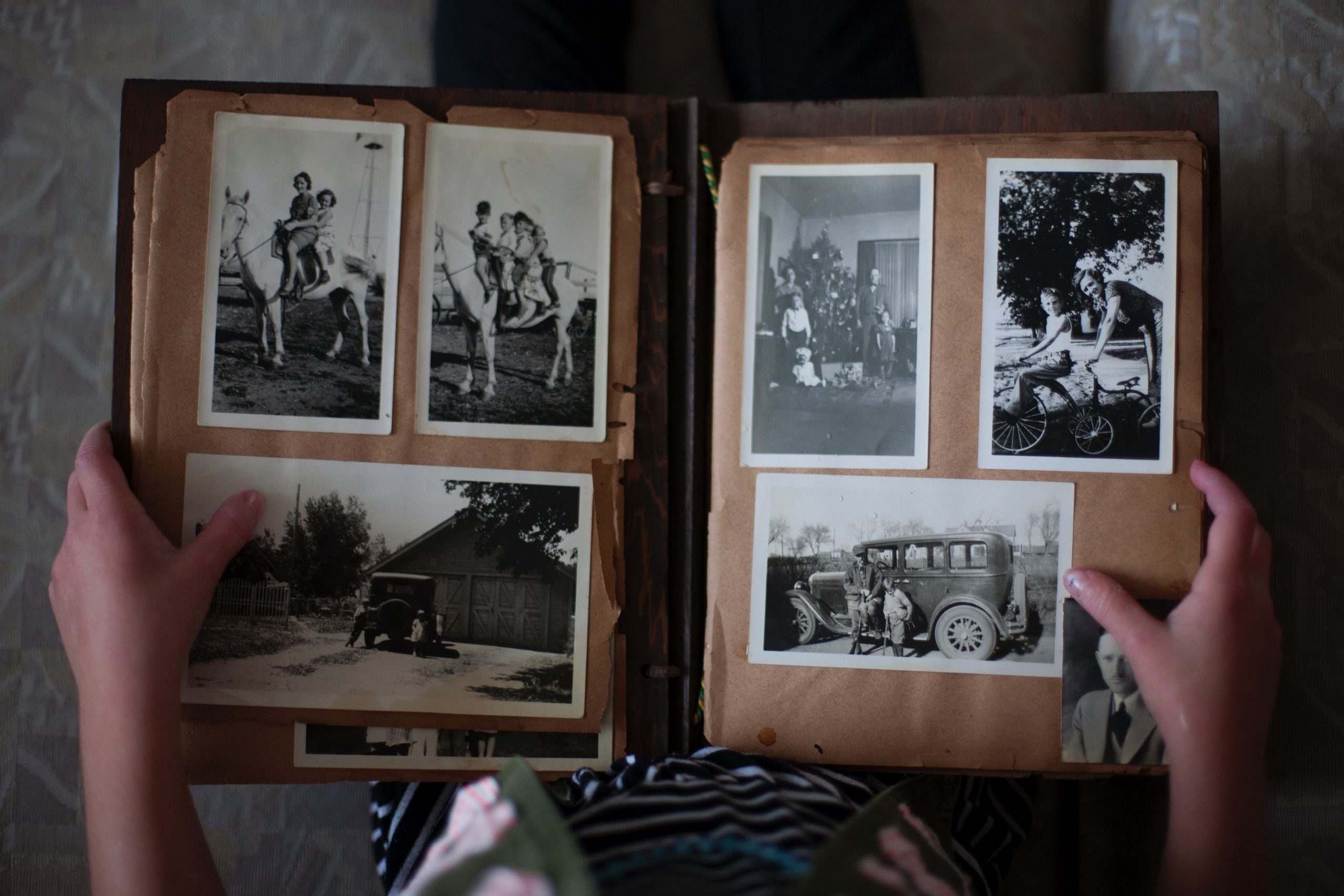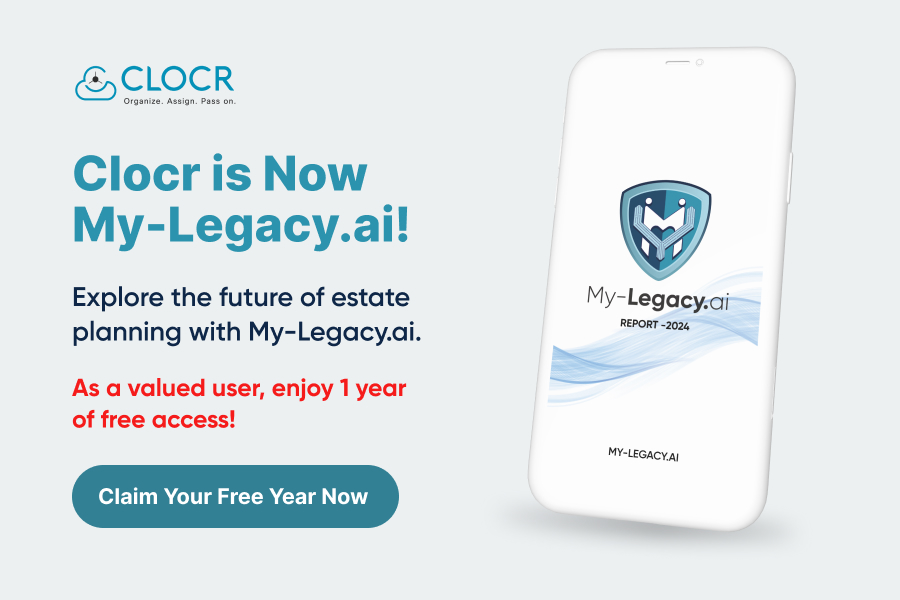With each passing year, our lives are becoming more and more digitized. From important documents that are stored digitally to how many followers you have on Instagram, technology has touched all of our lives, no matter what your age or what you do. But have you ever wondered what happens to these Digital Assets once you pass away?
What Is Digital Legacy Planning?
When they die, most people leave behind a legacy. The importance of that legacy and its effects vary drastically from person to person. But their legacy is determined by their actions from when they lived. Similarly, your digital legacy is what you leave in the form of your Digital Assets when you pass away.
Digital Legacy Planning comprehends your Digital Assets, memories, memorabilia, advice, experiences, life lessons, and knowledge in one place. Like how you store photos and letters in a box that get passed to your friends and family after death, you can pass on your Digital Legacy to your loved ones.
Since Digital Assets are relatively new to our lives, people more than often overlook them when creating an Estate Plan. This is because we equate Estate Plans to substantial assets such as money and property. But, Digital Assets are vital too. So, let’s find out how planning your Digital Legacy can help you.
Things To Note When Creating A Digital Legacy Plan For Influencers
Most influencers are active across a variety of social media platforms. This is in addition to their primary content creation platform (For example, a Youtuber primarily makes use of Youtube, but they might also use other sites such as Twitter and Instagram to interact with their audience). So it’s advised to separate your monetary Digital Assets from your non-monetary Digital Assets.
For influencers, their content is often a part of their life’s work. So they might wish to preserve their legacy, or because the revenue from their content could be beneficial to their loved ones. You can have your Digital Will state that you wish to preserve your Digital Assets following your death, provided that the service you use also allows it.
It is common sense to choose someone you trust as your executor. This is even more important in the case of influencers since some of their accounts are of interest to the public. As such, you should choose someone who wouldn’t try to take advantage of that publicity as your executor.
Things To Note When Creating A Digital Legacy Plan For Baby Boomers
Even though Baby Boomers are relatively less active on the internet when compared to the younger generations, they still have a significant Digital Footprint. Most baby boomers are active on at least 2 social media platforms. So, make sure you go through the bookmarks, browsing history, and check all the apps that are downloaded on the computer or smartphones.
For Boomers, their Digital Assets could range from non-monetary Digital Assets such as pictures and videos to monetary ones like PayPal accounts. And not everyone would like to pass on all of their Digital Assets to their loved ones following their death. So it’s pivotal that you decide what happens to your Accounts and their contents when you pass away.
Make sure your executor is someone who is tech-savvy and has knowledge about different digital platforms. The role of a Digital Executor comes with great responsibilities. So make sure it’s someone you trust as well.
Things To Note When Creating A Digital Legacy Plan For Millennials
Most millennials have a diverse range of online accounts and it’s difficult to remember all of them at all times. So, it’s best to go through the bookmarks, browsing history, and check all the apps that are downloaded on the computer or smartphones.
If you do not want your family members to handle your social media accounts, you can appoint your close friend as a Digital Executor – exclusively for your Social Media sites.
Things To Note When Creating A Digital Legacy Plan For Senior Citizens
If you decide to cancel or close accounts, make sure you designate someone to consolidate your photos into other storage devices before your account gets deleted. No matter what you decide, make sure your family members have all the necessary information to access your accounts.
There are many steps for creating a Digital Legacy Plan but storing and sharing them with your loved ones tops the list.
Clocr’s Time Capsule is an easy solution to store and share your Digital Legacy with your family. Moreover, you can even pass on personalized messages to your loved ones. You can use it to store and share photos, videos, favorite recipes to be passed down to the next generation, and even recorded audio/video messages for your special someone.
How To Prepare A Digital Legacy Plan
1. Take Inventory Of Your Digital Assets
The first step in most processes is making a list. It’s no different when creating a Digital Legacy plan. Most people have a variety of accounts and different kinds of Digital Assets associated with them. It’s also easy to overlook a couple of accounts that you no longer use.
So, it’s best to go through the bookmarks, browsing history, and check all the apps that are downloaded on the computer or smartphones.
Once you recall everything, start making a list of all the Digital Assets you want to include in your Digital Legacy.
2. Decide What Happens To Your Account In Your Absence
It’s important to decide what you want to do with your accounts. For example, you can choose to close your online accounts, cancel subscriptions (Amazon, Netflix, etc.), or memorialize them.
However, if you decide to cancel or close accounts make sure you have someone to consolidate your photos into other storage services before your accounts are deleted.
3. Analyze Digital Legacy Policies
Before you plan Digital Legacy, make sure you go over the Digital Legacy policies of various sites. For instance, Apple Legacy allows users to designate a contact who can access their account after their demise. Similarly, Facebook Legacy Contact allows users to assign a family member to manage the account after their demise.
4. Choose Your Digital Executor
A Digital Executor is the person who makes sure your wishes are carried out after your demise. Moreover, they ensure your privacy is protected. You can choose a specific individual as a Digital Executor for certain online accounts.
For example, if you do not want your family members to handle your social media accounts, you can appoint your close friend as a Digital Executor – exclusively for your Social Media sites.
Make sure they are tech-savvy and have knowledge about different digital platforms. The role of a Digital Executor comes with great responsibilities. So make sure you choose someone you trust.
5. Legalize Your Digital Legacy
It’s important to legitimize your Digital Legacy by making it legal and secure. Some people prefer to include it in their existing Will. However, Will becomes public knowledge after your death, which can cause privacy concerns.
The other problem with including your Digital Legacy in your Will is you need to keep updating it after every password change. Thus, it’s best to create a Digital Estate Plan. It can keep up with password changes without making your information public.
Now that you’ve learned how to create a Digital Legacy Plan, sign up with Clocr today to get started on creating your Digital Estate Plan!




